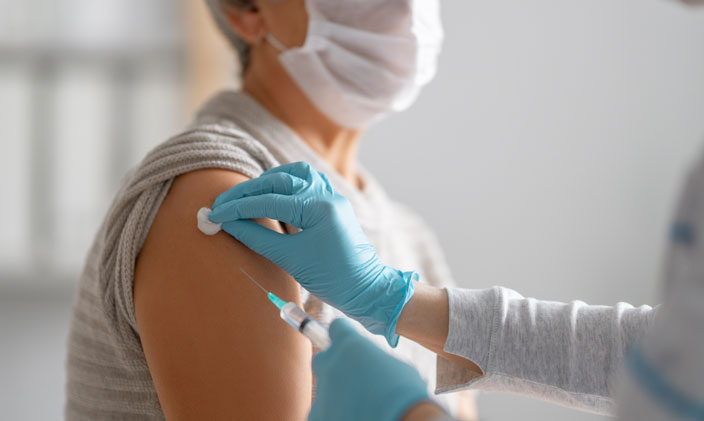What is a public health nurse?

Written by Michael Feder

Reviewed by Mark Jóhannsson, DHSc, MPH, Dean, College of Health Professions

Also known as community health nursing, public health nursing focuses on keeping at-risk populations healthy and promoting disease prevention by using modern nursing practices rooted in social, nursing and public health sciences. It emphasizes improving public health, largely through prevention and evidence-based practices.
Public health nurse responsibilities
Public health nurses focus on nursing applications for treating individuals and their families to positively influence the health of an entire community. They apply clinical knowledge and nursing leadership to encourage outcomes that lead to improved quality of life among all patients.
To keep communities healthy, these nurses may provide care to treat urgent illnesses, give immunizations, and provide preventive care and general education on health and wellness matters. Many also work to monitor environmental and social factors that impact health disparities across populations. These public health professionals can then focus attention and efforts on vulnerable populations to improve overall community health.
Public or community health nurses also serve as educators for community members. In this role, they keep the community aware of recent updates in healthcare applications, such as if there’s a new vaccine or recently identified disease risk factors. They also educate patients individually to make them aware of support services and care providers in their area.
They also cover a range of other responsibilities. They often work directly with patients, providing remedial treatment and following up with family members. Nurses also record and analyze medical data across their community in search of trends that can improve the quality of care.
Public health nursing skills
Public health nurses share a few distinct qualities. They need to have a demonstrated passion for helping others and patience for any community members who might be reluctant to seek treatment. It’s also helpful for these nurses to have sufficient knowledge of common care programs so they can answer patients’ questions.
Additionally, it’s important for community health nurses to have good communication skills. They must be able to speak with patients and clearly discuss symptoms, treatment and outcomes. Communication skills are also helpful for conversing with local leaders, particularly when advocating for new programs or resources.
Other useful skills include being able to strategically plan, think critically and function in a leadership position if need be.
Public health is a field that often changes. Practitioner responsibilities may change as treatments, procedures, medical devices and rehabilitation methods evolve. Because of this, public health nurses should have a desire to learn new things and to introduce newly learned concepts to community members.
Where do public health nurses work?
Nurses in public health work in a variety of locations. For example, some work for schools or other educational institutions to support both student bodies and educators. In other cases, they work in health clinics or within a larger healthcare provider.
Some are employed by government organizations. These nurses typically work in health departments, worksites or correctional facilities. Responsibilities in these various workplaces can look different. For example, a nurse working in a correctional facility may provide direct patient care while those in a health department may work with research.
At times, these nurses are directly employed by private companies, working for the health department of that private employer, helping to address health concerns of employees.
Nonprofit organizations, particularly in the healthcare sector, often employ public healthcare nurses as well. Depending on the nature of the nonprofit organization, nurses might work in an office, in a health clinic or as part of a mobile health team that serves a particular community.
Steps to become a public health nurse
1. Earn a nursing degree
To become a public health nurse, you must begin by becoming a registered nurse (RN). To become an RN, you need a nursing degree or diploma. According to the U.S. Bureau of Labor Statistics, there are three typical paths to become an RN: an Associate Degree in Nursing, a bachelor’s in nursing, or a diploma from an approved nursing program.
2. Pass the NCLEX-RN
After you obtain your nursing education, you need to obtain licensure as a registered nurse, which requires successfully passing the National Council Licensure Examination (NCLEX-RN). This exam tests your knowledge in fundamental nursing areas, including critical thinking, effective care and psychosocial integrity
Want to learn more about becoming a public health nurse?
While looking at careers as a public health nurse, keep in mind while University of Phoenix does not offer a program leading to licensure as a registered nurse, it does offer programs for those who are already RNs to enhance their skills:
- RN to Bachelor of Science in Nursing: This RN to BSN degree online will enhance post-licensure nursing skills, covering health administration, business management and more.
- RN to Bachelor of Science in Nursing (Competency-Based): This competency-based RN to BSN program is designed for working professionals who have an associate degree in nursing, an unencumbered RN license and one year of professional experience. It encompasses business management, critical thinking, holistic nurse care and more.

ABOUT THE AUTHOR
A graduate of Johns Hopkins University and its Writing Seminars program and winner of the Stephen A. Dixon Literary Prize, Michael Feder brings an eye for detail and a passion for research to every article he writes. His academic and professional background includes experience in marketing, content development, script writing and SEO. Today, he works as a multimedia specialist at University of Phoenix where he covers a variety of topics ranging from healthcare to IT.

ABOUT THE REVIEWER
Currently Dean of the College of Business and Information Technology, Kathryn Uhles has served University of Phoenix in a variety of roles since 2006. Prior to joining University of Phoenix, Kathryn taught fifth grade to underprivileged youth in Phoenix.
This article has been vetted by University of Phoenix's editorial advisory committee.
Read more about our editorial process.


